MercoPress. South Atlantic News Agency
Tag: Bovespa
-
Thursday, July 5th 2018 - 08:41 UTC
Brazilian stock market up 1%; Electrobras shares soar 18%
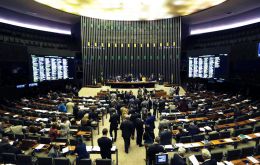
Brazil's benchmark Bovespa index jumped more than 1% on Wednesday in low-volume trading on the U.S. Independence Day holiday, while shares of Brazilian power utility Centrais Elétricas Brasileiras SA soared.
-
Saturday, June 30th 2018 - 15:47 UTC
Brazil's Temer approval rating in a new record: 4%
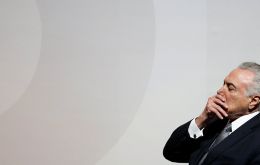
Brazilians' disapproval of Michel Temer's administration has risen from 72% to 79% in the second quarter of 2018, according to a survey conducted by the National Industry Confederation (CNI) and Ibope.
-
Friday, June 29th 2018 - 08:54 UTC
Brazil's currency and stock market recover on Thursday, helped by opinion poll
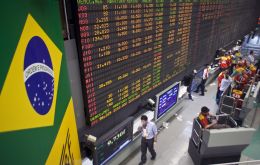
The Brazilian real climbed almost 1% against the dollar on Thursday, as a rout on Wednesday led to a technical correction and a key poll showed Brazil's left failing to gain steam in presidential elections scheduled for October.
-
Wednesday, June 27th 2018 - 08:26 UTC
Brazilian shares recover cautiously; Central bank absent from the foreign exchange market

After trading lower for a good part of Tuesday's session, the Ibovespa closed higher for the third consecutive day (+0.64%), to 71,404.59 points, driven mainly by the shares of Petrobras and Vale. The improvement in the U.S. stock markets also helped to recover the benchmark stock index in Brazil, although concerns remain about a world trade war.
-
Tuesday, June 26th 2018 - 08:22 UTC
Latam stocks and currencies hit by global trade disputes
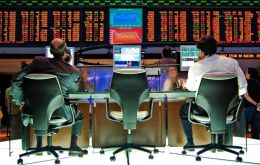
Latin American stocks and currencies mostly fell on Monday as the trade dispute between the United States and other leading economies worsened, but central bank intervention kept the Brazilian real steady.
-
Thursday, June 7th 2018 - 09:04 UTC
Brazilian currency falls amid rising investor worries and political turmoil
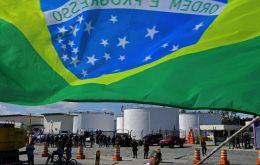
The Brazilian currency has fallen to its lowest level against the dollar in more than two years, amid rising investor worries over recent economic and political turmoil. The Real is down 14% this year, near its lowest levels since March 2016. On Wednesday in New York, the dollar bought 3.8534 Reais, versus 3.8087 Reais late Tuesday.
-
Thursday, January 25th 2018 - 07:05 UTC
Brazil shares surge as Lula's corruption conviction is confirmed ruling him out his presidential bid

Brazilian assets soared, with the Bovespa surging above 83,000 for the first time ever, and the currency Real surging through 3.20 after three judges in a local appeals court upheld a conviction for corruption imposed last July on ex-President Lula da Silva.
-
Wednesday, January 17th 2018 - 09:29 UTC
Brazilian stocks at an all time high, as optimism grows recession is over
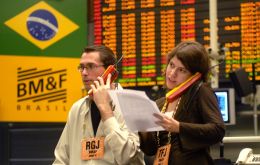
Brazilian stocks on Tuesday edged up to an all-time high as optimism over the nation's economic prospects kept an early-year rally alive. The benchmark Bovespa stock index rose 0.3% to 79,951, nearing the 80,000 milestone for the first-time ever.
-
Tuesday, January 9th 2018 - 10:01 UTC
Brazilian stocks edge higher convinced Lula will be barred from running in election
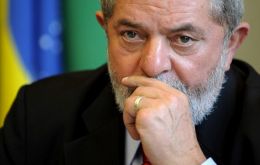
Brazilian stocks edged higher to mark a record close on Monday, underpinned by optimism over the nation's fiscal outlook as well as a strong flow of international investment. The benchmark Bovespa stock index continued its climb following a seven-day string of gains.
-
Friday, November 28th 2014 - 06:46 UTC
New Brazilian minister pledges realistic fiscal targets and balanced economic growth
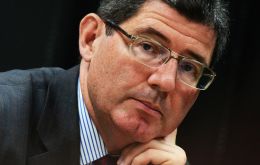
Brazilian President Dilma Rousseff finally announced on Thursday the appointment of Joaquim Levy, as her next Finance minister who is also known as the 'scissors man', who pledged more realistic fiscal targets and promised more balanced economic growth.
